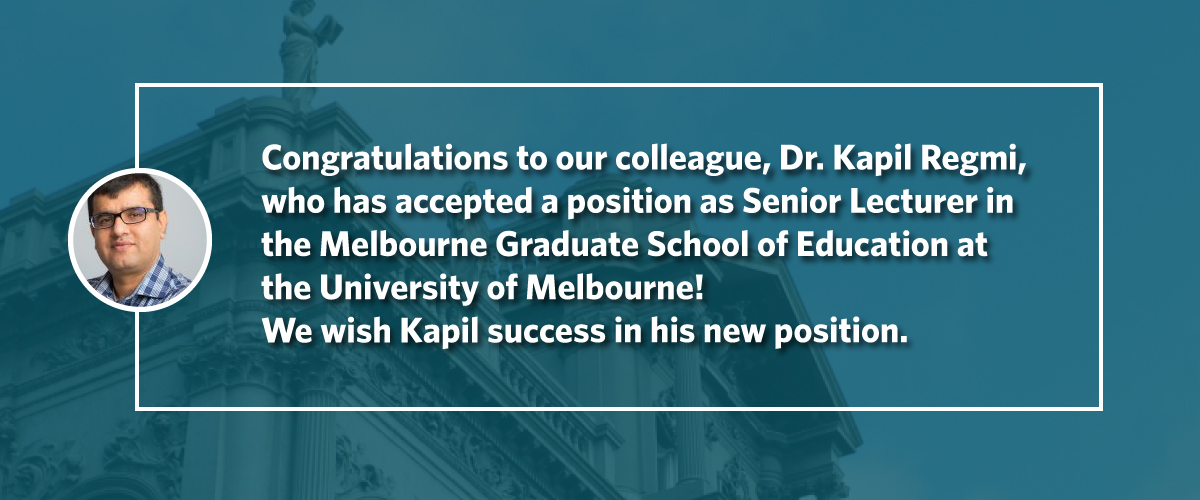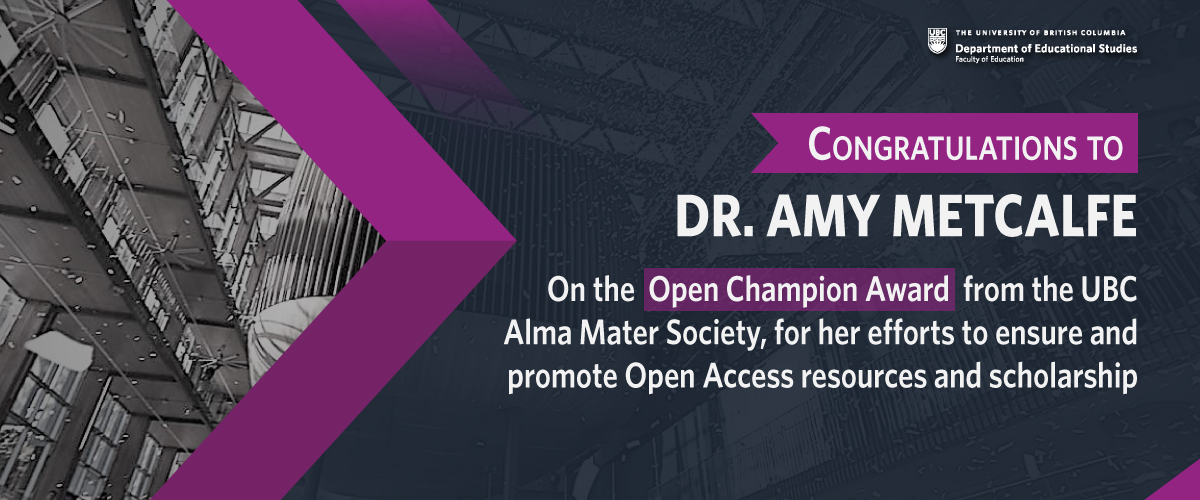
Learn more about the study tour: https://global.ubc.ca/news-events/news/apr-8-2021-new-way-connecting-canadian-and-south-american-indigenous-communities
Please join us in congratulating Amy for receiving the “Open Champion” award for her efforts to ensure and promote Open Access resources and scholarship. The announcement letter noted: “ On behalf of all students at the Alma Mater Society of UBC Vancouver, the Provost’s Office, and the UBC Library, we would like to recognize you as a Leader in Open Learning — a member of the UBC community who, in response to moving courses online, worked to support affordable and inclusive access to learning materials through the use of Open Educational Resources (OER).” Thank you Amy for your longstanding promotion and support of Open Learning access and scholarship.
Well done!

You can read the summary on the Learning Design Views site
Responding to the COVID-19 pandemic: University rankings or co-operatives as a strategy for developing an equitable and resilient post-secondary education sector?
Follow the link:
https://link.springer.com/article/10.1007/s11159-021-09891-0
2019/2020 Survey on Antiracism for Teacher Education Candidates
Report No. 1
Authors: Oladipupo Ogunfeibo, Bathseba Opini, Hartej Gill, Jason Ellis, Annette Henry, Andre Mazawi & Michelle Stack
Project Team Members: Dr. Bathseba Opini, Dr. Hartej Gill, Dr. Jason Ellis, Dr. Annette Henry, Dr. Michelle Stack, Dr. André Elias Mazawi (Faculty of Education); Dr. Shaya Golparian (Center for Teaching, Learning and Technology (CTLT); Rod Brown, Dr. Marianne McTavish and John Yamamoto (Teacher Education Office); Dr. Vince White (North Vancouver School District), Meena Uppal (Richmond School District), Dr. Daniel Shiu (Surrey School District) and Ashley House (Vancouver School District).
Graduate Research Assistants: Oladipupo Ogunfeibo, Denneisha Griffins & Sameena Jamal
Congratulations Vanessa, who has been named as a Senior Fellow at NORRAG in Switzerland. Vanessa has been chosen to join the first cohort of senior fellows. NORRAG is a network for the development of international policies and cooperation in education and training.
From the programme description: Through our Senior Fellowship Programme, starting in April 2021, NORRAG aims to reverse the North-to-South flow of research and decision-making by creating space and a megaphone to amplify under-represented expert knowledge from the South to audiences in the North. This programme will also develop long-term research links and partnerships that bring together distinguished expert voices from the Caribbean to the Indian subcontinent, from Africa to Eastern Europe.
https://www.norrag.org/senior-fellows/
This is a significant achievement and a testimony to the importance and value of Vanessa’s contributions to global understanding of education and equity.
Well done, Vanessa!

Please visit this link for details: https://zoom.us/meeting/register/tJIlfumvqTwqGNG9XOvhMiVC-2GurttbBXkQ
(Mar 22, 6am Vancouver time)